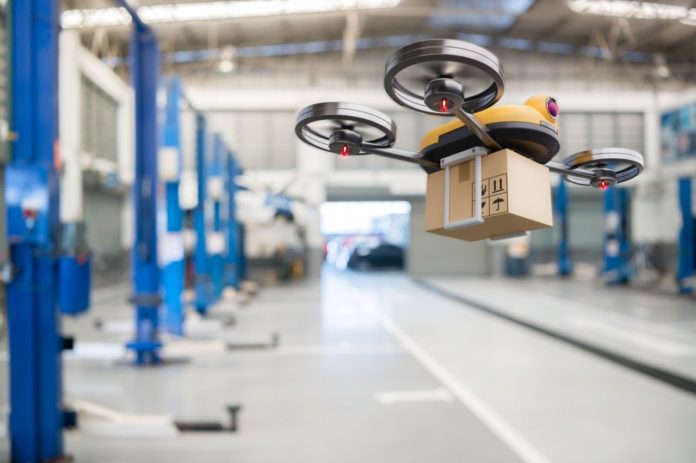
When you think about drones, your mind tends shifts to beautiful photography, splendid vistas, and how much fun you can have, observing the world from ‘above.’ As satisfying and toy-like drones can be, they are also a very serious technological advancement for numerous industries, especially the logistics industry. Logistics software company CartonCloud states, “Drones will most definitely improve the last mile for urgent and/or sensitive freight.” The fact is drones are faster and undoubtedly cheaper to operate than most traditional transport options. Consider the expense incurred by a logistics company sending trucks all over the country; trucks aren’t nearly as fast as drones, and in addition, they require a person to drive them. Drones, on the other hand, can be automated and make deliveries without the additional cost of a driver having to oversee their every move. From trucking freight to air, rail, and shipping, the usefulness of drones remains apparent.
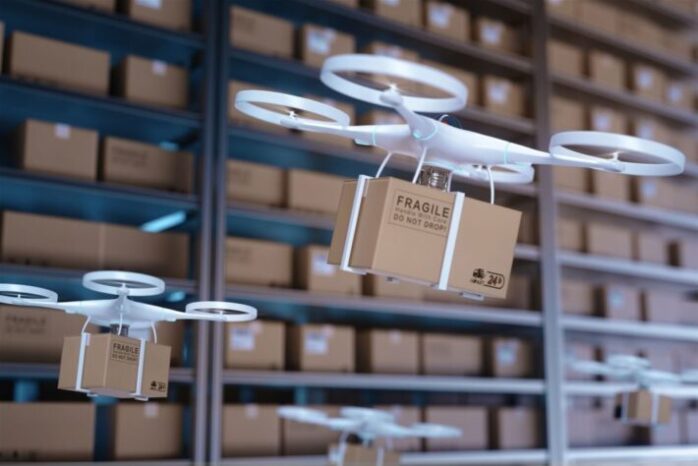
According to Drone Life, “Danish logistics and international shipping giant, DFDS, has been combining drones and AI to streamline terminal operations.” Already we are seeing companies around the globe embracing the power of drones to successfully support their supply chain operations and evolve their business into 2024 and beyond. With all the positives and cost savings to one side, the fact still remains; the sky isn’t currently full of drones, for a reason. Supply Chain 24/7 states, “The technology exists to make drone deliveries feasible, but there are plenty of impediments – regulations on airspace, package weight, the need for certified pilots – that prevent large-scale adoption today.”
In this article, we will explore the pros and cons of drones in the logistics space, and how businesses around the globe are embracing this new technology and overcoming the numerous challenges they are facing with regulations and legislation.
Pros: Drones Support Remote Communities
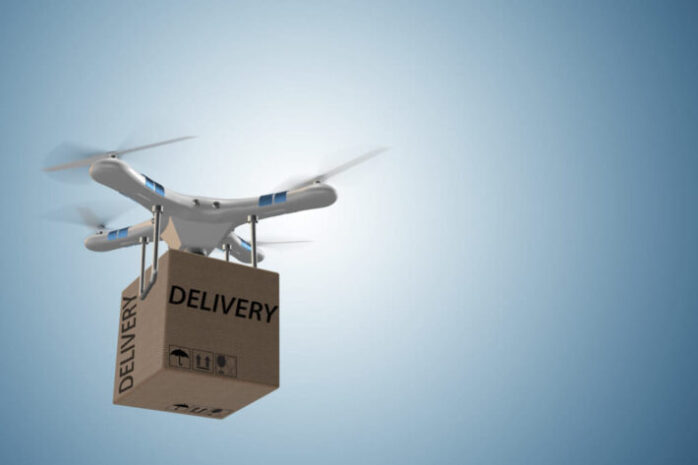
Imagine a very poor African community in the middle of nowhere. In this community, medicines and medical supplies are extremely hard to come by, considering the closest port, airport or railway is miles away. The fact that a number of commute communities are too far from logistics hubs and infrastructure often means people can lose their lives due to limited access to necessary and sometimes life-saving supplies.
Drones, in this regard, are the ideal, as they can deliver much-needed medicine and support to remote communities around the world, allowing more people greater access to sensitive, time-dependent freight. Hospitals in Ghana proof drones are an important technological advancement, as they are now embracing the latest drone program being rolled out across Africa and are seeing positive results.
Vox states, “New Tafo is one of several hospitals making use of the country’s new medical drone program, which aims to prevent deaths by quickly getting blood and medications to remote areas that otherwise have trouble accessing them.” If the example of a life-saving drone isn’t a pro, then I don’t know what is?
Cons: Unwanted Interference & Hacking

The sky is a seemingly ‘safe’ place for people to fly goods, but due to a lack of regulation governing the world of drones, they are prime targets for theft or even hacking. According to American Express, “Hurdles like privacy and security, safety risks, and risk of interference with other private, military, and commercial aircraft are currently preventing this futuristic supply chain management solution from becoming a widespread commercial reality.”
If we suddenly move away from the notion of ‘simple’ and ‘harmful’ packages being delivered by drones and momentarily move into the zone of military logistics and surveillance, the concept of drone ‘hacking’ or ‘theft’ is suddenly taken to a more serious level, potentially compromising top-secret operations that suddenly has the potential to threaten human life or even worse, create a full-blown war.
If we take the use of drones to this extreme, we start to see things in a new light, making the regulation king and something that desperately needs to be put in place before our skies become a danger to us all. The Conversation, states, “UK cybersecurity consultant James Dale warned earlier this year that “equipment is now available to hack drones so they can bypass technology controls.”
Pros: Environmentally Friendly
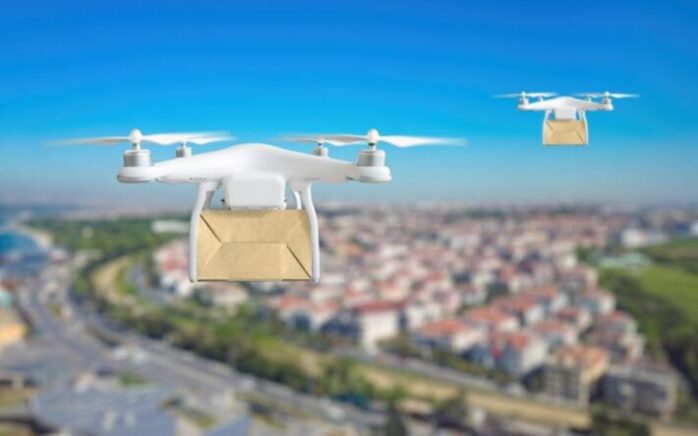
Science direct states, “The potential negative impacts of transportation on the environment can be listed as degradation of air quality, greenhouse gas emissions, increased threat of global climate change, degradation of water resources, noise and habitat loss and fragmentation.” Compared to trucks, ships, and planes, drones are undoubtedly a more sustainable and environmentally friendly option for customers and companies alike.
According to The Drive, “A growing number of companies are dabbling with drones when it comes to delivery. A study conducted by Nature Communications, an open-access scientific journal, found that drone delivery of packages could reduce greenhouse gas emissions and energy use.” With recent environmental tragedies across the planet signifying the impact of our rapidly changing environment, the more individuals and businesses can do to embrace positive, sustainable change, the better. If drones can help to stop some of the diabolical environmental impacts of the logistics industry, I say bring it on!
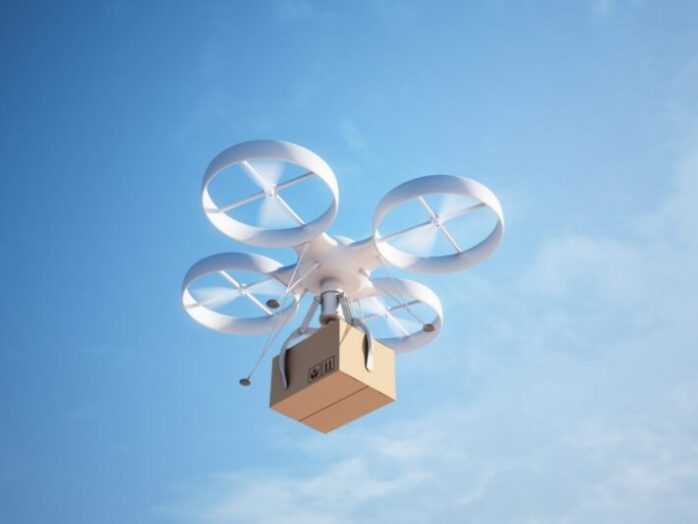
“More groups, businesses, and industries are learning to harness this technology’s ever-growing potential as it becomes more accessible, with logistics companies set to benefit the most” states world-leading logistics company, DHL. Taking into consideration all the pros and cons involved in drone use, it’s clear a lot more consideration, conversation, and legislation needs to take place and be put in place before our skies will be covered in a swarm of drones. Yes, drones may be more environmentally friendly, help people in remote communities, but they can also be weaponized, seized, stolen, and hacked, which could also have dire consequences for humanity.
Pros and cons aside, The Conversation further suggests, “Between 2015 and 2024, the global commercial drone market is expected to grow from $5.95 billion to $7.47 billion.” With everything said and done, the drone industry is still set to boom, and now is the time to move into this new and exciting space before it becomes too saturated and hard to penetrate.











